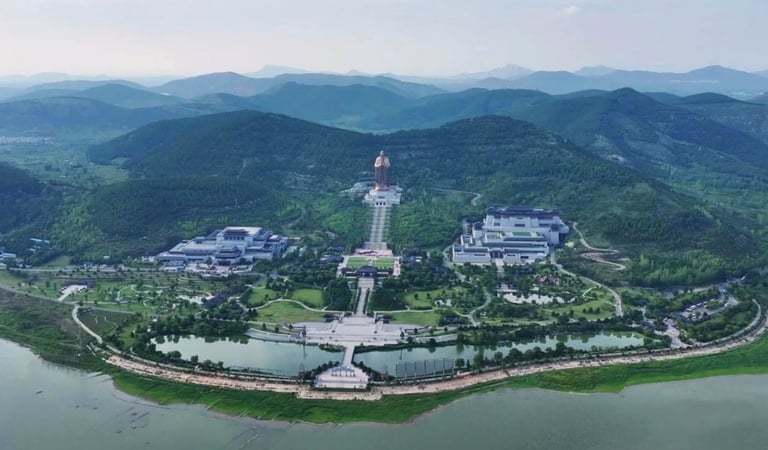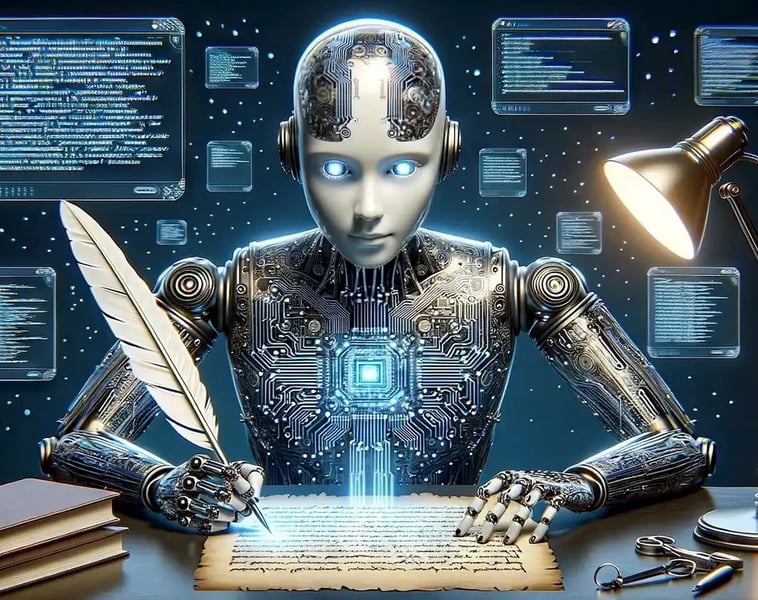Ilya Kanaev: AI a Catalyst for Promoting Symbiosis among Civilizations
Listening to Nishan Forum on World Civilizations


The 11th Nishan Forum on World Civilizations will be held in Qufu, Shandong Province; July 9 to 10, 2025.
Ilya Kanaev stated that in the face of emerging technologies like artificial intelligence, establishing prudent evaluation mechanisms and regulatory systems is crucial. The key challenge for the future lies in how to promote technological innovation while safeguarding human autonomy and choice, achieving a dynamic balance between technological progress and human development.
Author: Wang Hui
2025-07-05
Economic Observer
Editor’s Note:
On July 9–10, 2025, the 11th Nishan Forum on World Civilizations will be held in Qufu, Shandong.
Since its founding in September 2010, the Nishan Forum has brought together experts and scholars from around the globe, pooling the wisdom of world civilizations to address common challenges facing human society and to contribute insights for the future development of human civilization. It is increasingly becoming an important window for the world to understand China, a vital platform for exchanges and mutual learning among civilizations, and a key link for building consensus across human civilizations.At a time when political conflicts are frequent worldwide, trade barriers among nations are rising sharply, and dialogue between different civilizations is more urgent than ever, the theme of this year’s forum is “Each Civilization Shines in Its Own Way, Together We Flourish—Relations Between Civilizations and Global Modernization.”
The forum will feature multiple subtopics, including:
“The Origins of Civilization and Its Future Development”
“The World Significance and Contemporary Value of Confucian Culture”
“Qilu Culture and World Civilization”
“Mutual Fulfillment in the Process of Global Modernization”
“The Meaning of Family and Social Development from a Civilizational Perspective”
“The Development of Artificial Intelligence and the Future of Human Civilization.”
How can the world truly achieve mutual appreciation of civilizations, flourishing together in harmony? How can different civilizations coexist, learn from one another, and jointly create a better future for humanity? In line with the forum’s theme and subtopics, Economic Observer interviewed scholars and experts from various countries and regions. What follows are their reflections, insights, and expectations.
By Wang Hui, Economic Observer Reporter
As artificial intelligence (AI) accelerates its integration into education and social domains, its impact on human identity, cultural transmission, and ethical systems is drawing increasing attention. From an application perspective, AI is often regarded as a tool to improve learning efficiency and personalize education. Yet when AI intervenes deeply in human knowledge dissemination and social interaction, its profound influence on moral formation, self-understanding, and the intergenerational transmission of values has not been fully examined. At the upcoming 11th Nishan Forum on World Civilizations, Russian scholar Kanaev Ilya, a visiting researcher under the “Qilu Study and Research Residency Program,” will deliver a speech on “Ritual as the Guiding Principle: Designing an Ethical Framework for Artificial Intelligence” in the sub-forum “The Development of Artificial Intelligence and the Future of Human Civilization.”
Kanaev Ilya has been working in China for over a decade. His research areas include artificial intelligence and civilizational dialogue, theories on the evolution of human consciousness, cross-cultural studies, and epistemology. This will be his sixth time participating in the Nishan Forum. He emphasized that in facing emerging technologies such as artificial intelligence, it is crucial to establish prudent evaluation mechanisms and regulatory systems. The key challenge ahead lies in how to promote technological innovation while at the same time safeguarding human subjectivity and freedom of choice, thus achieving a dynamic balance between technological progress and human development. He argues that alongside advancing iterations of AI, we should pursue a dual pathway of institutional design and technical architecture that embeds national cultural characteristics and values into the development system of artificial intelligence—so that technology may truly serve as a constructive force for social progress and the continuation of human civilization.
From “Civilizational Confrontation” to “Shared Beauty in Harmony”
Economic Observer: This is your sixth time participating in the Nishan Forum. Over the years, the forum’s themes have undergone several transformations. In your view, how do these shifts reflect deeper changes in the global focus on issues such as human civilization and artificial intelligence?
Kanaev Ilya: This year marks the 11th Nishan Forum, and the evolution of its themes mirrors a major global shift—from confrontation toward constructive dialogue. In this process, technological progress is no longer framed as a threat, but rather as a powerful instrument for safeguarding and enriching the diversity of human cultures.
With the inclusion of topics such as “Mutual Learning Among Civilizations” and “Harmony Without Uniformity,” the forum has increasingly focused on identifying common ground among different cultural paradigms. It has encouraged participants to move beyond ideological opposition and instead seek resonant values—laying the groundwork for deeper integration of technology and culture.
Moreover, the forum has gradually achieved an organic fusion of Confucian principles—li (ritual propriety) and ren (humaneness)—with frontier technologies such as artificial intelligence. Technology is no longer a cold, impersonal tool, but has become an important medium for cultural communication. This integration not only highlights the contemporary value of traditional culture but also infuses technological development with humanistic meaning.
At present, the Nishan Forum, as a unique platform, has formed a three-dimensional practice system of “theoretical validation—technological adaptation—civilizational dialogue.”
Through scenario-based applications of AI, the forum has demonstrated the applicability of Confucian thought in the digital age.
It has guided algorithm design to balance efficiency with ethics, offering developers deep cultural codes for AI development.
It has explored modes of cross-civilizational interaction, working toward intercultural communication protocols grounded in li, thereby translating the ideal of “each civilization shining in its own way, flourishing together” into concrete practice—providing both technological and cultural pathways toward building a community of shared human civilization.
Economic Observer: This year’s forum emphasizes relations between civilizations and global modernization. In your view, what role does artificial intelligence play in the future process of global modernization, particularly in fostering exchange and cooperation among different civilizations?
Kanaev Ilya: The diversity of civilizations is a key strength of humanity and a necessary condition for sustainable development. In a world of constant transformation, no social structure can remain permanently effective. Even the most advanced, virtuous, and morally refined civilization will face crises of adaptation if it closes itself off. Thus, preserving the diversity of lifestyles and modes of thought is a fundamental condition for humanity’s survival.
Contemporary China demonstrates a successful paradigm of adaptation—by deeply integrating frontier technologies with the value system of socialism, it has both preserved cultural subjectivity and maintained the dynamism of technological innovation. Yet for sustainable global development, it is essential to maintain multiple civilizational centers rooted in different systems of thought.
Against this backdrop, embedding ritual norms (li) into the “education” of artificial intelligence carries special significance in three main respects:
First, AI can become a bridge for civilizational dialogue. As a technological vehicle for translation, analysis, and communication across civilizations, AI must go beyond surface-level language conversion. It should grasp the cultural codes and ritual norms of different peoples—ensuring that translation accounts for both semantics and cultural context, and that communication adapts to diverse cultural protocols—so as to achieve genuine civilizational exchange.
Second, safeguarding identity in the process of modernization. By embedding the Confucian core concept of li into AI design, the technology will not forcibly erase differences between cultures. Rather, like traditional rituals that mediate interpersonal relations, AI can serve as a “harmonizer” of cultural differences. Such technology could embody the Confucian wisdom of harmony without uniformity by building dynamic adjustment mechanisms at the algorithmic level.
Third, the dialectical unity of tradition and progress. The Chinese experience shows that effective modernization is not a mechanical transplantation of technology, but an adaptation of technology to cultural contexts.
By incorporating ritual norms into artificial intelligence, we may enable AI to transcend its role as a mere communication tool and become a catalyst for civilizational coexistence. In a truly inclusive global community, technological progress will serve to enhance—rather than diminish—the diversity of civilizations.
Confucian Wisdom and the Reconstruction of AI’s Ethical Framework
Economic Observer: How can we reconstruct artificial intelligence using a framework of ritual, so that it draws on the Confucian wisdom of li as well as cross-cultural traditions of etiquette, transforming it from an efficiency-driven tool into a mediator of ethical cultivation?
Kanaev Ilya: The ritual-based reconstruction of artificial intelligence essentially means embedding the dynamic practical wisdom of Confucian li—not rigid algorithms—together with intercultural traditions of ritual into the logic of technology. In this way, AI can shift from being a tool that prioritizes efficiency to becoming a structure that fosters moral subjectivity—a ritual mediator.
To rebuild AI within a ritual framework, we must rethink its position in the ethical context of ritual. This process can be grounded in Marxist philosophy as a methodological basis—treating AI as a tool of labor that facilitates harmonious interaction between individuals and society. Through the ongoing adjustment between technical practice and cultural needs, we can achieve an organic unity between algorithms and ethics. The concrete pathways involve three main aspects:
First, prioritize substance over form. The essence of Confucian li lies in jing (ethical attentiveness) and yi (contextual discernment), rather than in formalized rules. AI design should avoid mechanically encoding ritual norms and intercultural traditions into algorithms. Instead, through embodied interaction design, technology should be naturally embedded into everyday practice.
Second, transform principle into practice. Ethical guidelines for AI must become an organic component of the system rather than an abstract set of doctrines. This means that in every stage of AI development and application, ethical norms must be integrated into the design process itself, forming part of the system’s very architecture.
Third, draw from the Chinese experience. Based on my more than ten years living in China, I have observed how the country has realized a dialectical unity between technological innovation and cultural transmission, offering valuable lessons for AI development. In fields such as education, healthcare, and cultural preservation, AI applications in China consistently emphasize embedding traditional values and ethical principles into the technological logic. The core of this model is that while technological innovation drives social progress, cultural heritage safeguards the value foundations.
This paradigm can serve as a reference: as AI technology continues to evolve, we should embed national cultural characteristics and values into the AI development system through both institutional design and technical architecture. Only then can technology become a constructive force that supports social progress and the continuity of human civilization.
Economic Observer: As AI accelerates its penetration into every field of life, its reshaping of human modes of cognition has already become a central issue in the evolution of civilization. From the Confucian idea of li—that humans are moral subjects—to this forum’s theme of “Each Civilization Shines in Its Own Way, Flourishing Together,” how should we strike a balance between technological development and humanistic values, especially when AI can “predict” human thoughts through algorithms or “interpret” emotional expressions through cameras?
Kanaev Ilya: It is true that AI can simulate certain human responses, but it still cannot fully replicate human perceptual capacities. Human sensory systems—vision, hearing, touch—are grounded in subjective consciousness and real-world cognition, a domain that current AI technology has not yet reached.
The ability to anticipate others’ thoughts and to think independently forms the foundation of social interaction. Human beings communicate and understand one another within cultural frameworks precisely because they can predict others’ responses and adjust their own behavior accordingly.
Since human behavior patterns exhibit regularity under the dual constraints of biology and cultural norms, programming simulations of these responses is not impossible from a technical standpoint. In this sense, AI already possesses a limited capacity to participate in social interaction, though it has not yet posed any fundamental challenge to human society.
When discussing humanity’s dependence on technology, we must acknowledge that modern society is already deeply intertwined with it. Imagine the chances of survival for an ordinary person in the wilderness without the support of modern technology—they would be vanishingly small. Technology has become an organic component of human lifestyles and even the very form of civilization.
The rapid development of AI may indeed be driving a new technological paradigm shift. But such transformations are not unprecedented in human history: from the harnessing of fire to the steam engine revolution, technological innovation has always been interwoven with the evolution of civilization.
That said, we cannot afford complacency. With emerging technologies such as AI, it is essential to establish prudent evaluation mechanisms and regulatory systems. The key challenge for the future is how to promote technological innovation while preserving human subjectivity and freedom of choice, thereby achieving a dynamic balance between technological progress and human development.
Safeguarding Human Subjectivity in the Age of Artificial Intelligence
Economic Observer: At present, AI is often regarded as a tool for improving learning efficiency and personalization. Its defining characteristics are the pursuit of speed, accuracy, and task completion. Confucianism, however, views li not as a rigid algorithm but as a formative practice, emphasizing the coordination of technological progress with cultural and ethical traditions. In your view, does AI’s “efficiency-first” orientation affect human modes of cognition and the formation of values?
Kanaev Ilya: The existence of AI as a technological tool inevitably corresponds to human needs. Attempting to block technological progress would only result in social stagnation. Take education as an example: students using AI to complete homework and teachers using AI to grade assignments have already become trends. Yet in essence, this is no different from earlier transformations in the history of education.
In the past, knowledge could only be transmitted through face-to-face teaching between teacher and student. The emergence of the university lecture hall broke the constraint that deep personal bonds were required for knowledge transmission, enabling the development of mass education. The spread of books then diminished the value of rote, word-for-word teaching by instructors. Later, the internet and the digital wave further dissolved the traditional role of education as mere information delivery. Today, when AI can instantly answer most questions, the real issue is no longer how to answer questions, but whether one can ask meaningful ones.
We must recognize that this process of transformation has unfolded with unprecedented speed in historical terms. Modern AI is essentially a natural extension of the tradition of books and mass media—representing a new stage in the evolution of human communication. Education systems must therefore adapt to this new paradigm of knowledge dissemination.
Efficiency as a concept has never existed in isolation. At its core, it refers to the capacity to use resources effectively to achieve goals. For this reason, the central value of education should shift away from simple information transfer toward a focus on personality development and moral cultivation.
Economic Observer: How can we ensure that AI both helps humans solve practical problems and at the same time safeguards human subjectivity—avoiding a situation in which overreliance on AI weakens human moral and cognitive capacities?
Kanaev Ilya: From the Confucian perspective of li, human beings, as moral subjects, must maintain autonomous awareness in their interactions with technology. Regarding how AI can assist humanity without undermining subjectivity, I believe efforts must be made across multiple dimensions.
In everyday life, the value of technology should lie in simplifying tasks and freeing up energy, but balance is key. For example, when automation reduces physical activity, humans should consciously compensate with exercise or leisure walks to avoid weakening bodily functions through overdependence on technology. This principle aligns closely with the Confucian idea of self-cultivation: without self-discipline and self-improvement, it is difficult to shape a sound personality.
Thus, when AI deeply penetrates daily life, the Confucian virtues of self-restraint and balance become particularly vital. Take food delivery services: while they spare people the trouble of daily shopping, choosing to visit a marketplace in person allows one not only to obtain fresher produce but also to preserve essential physical activity through walking and selecting.
On the level of intellectual creativity, AI must likewise be positioned as an auxiliary tool. It can efficiently polish texts or analyze data, but it must never replace human critical thinking or creativity. This is like the kitchen knife: a powerful instrument that can greatly enhance cooking efficiency, but one that must be used with caution to avoid harm. Similarly, AI must be approached with prudence, with users maintaining constant clarity of judgment.
However, individual responsibility alone is insufficient. We must also establish legal and regulatory frameworks to define the boundaries of AI applications, drawing clear red lines through institutional design. In talent cultivation, systematic programs of technological ethics education should be advanced to strengthen the ethical judgment of the general public. And in cultural transmission, we must promote the deep integration of traditional values such as harmony and the doctrine of the mean with the digital age, so that technological development is rooted in a humanistic soil.
Ilya Kanaev
5 July 2025
Proceed investigation...
AI and modern culture is a hot topic now, so a lot of interviews and publications by Ilya Kanaev are dedicated to this topic. His insights delve deep into how artificial intelligence shapes various aspects of contemporary society, influencing everything from art and literature to technology and ethics. Moreover, Ilya Kanaev explores the implications of AI on human creativity and offers a unique perspective on the evolving relationship between man and machine. Follow these links to proceed and discover a wealth of information on this fascinating subject, including articles, interviews, and other related resources that provide a comprehensive understanding of AI's role in modern culture.


地址:
山东大学
儒学高等研究院
1801室
联系:
电话 | 微信:+86-13902409939
邮件:kanaev@qq.com
